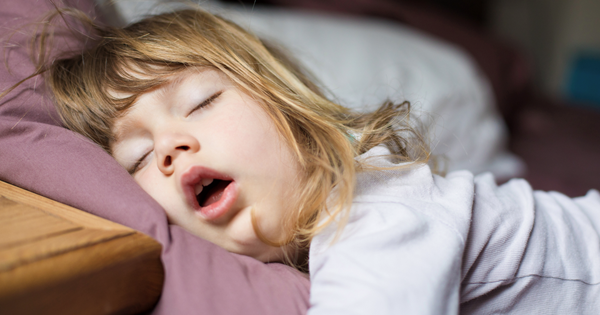The importance of sleep
News & Events

The importance of sleep
23 January 2019
The Importance of Sleep
Sleep is the ultimate feel good activity – hands up if you always feel refreshed after a great night’s sleep! Well, as you may have suspected there’s a much deeper reason why sleep makes us feel better both mentally and physically and it’s got a lot to do with the magic our bodies perform when we’re getting some z’s.
When it comes to children, they require anywhere between 9-13 hours of sleep per 24 hour period in order to let their minds and bodies reset and recover from their busy days, and ensure they’re feeling their best for the next day ahead. If you’re incorporating school, sport programs and family activities into their day, a good sleep routine only becomes more and more important. So, here are some fascinating facts about our sleep process and what the right amount of sleep really means for the health of our kids.
Mentally
Even as adults, we all need time to wind down after a big day. When you’re little, every day is big, so that mental wind down before bed time is always important. Dreams are a way of sorting and processing information from the day (even though they mostly make no sense) and your brain converts thoughts and events into long term memories when you sleep. So that’s just one example of how sleep improves cognitive function - in the form of your memory. When these functions are activated in the brain, it improves the quality of connection between nerve cells in the brain that communicate with each other, essentially strengthening learning abilities as well.
In fact, studies have shown that good sleep routines are directly linked to better learning outcomes for children, enhancing attention and focus. A recent study showed that lengthening the amount of sleep children were having by just 27 minutes also had huge benefits to child behaviour and mood in school and at home. When these good sleeping patterns are combined with sport and exercise, they have long term positive effects on motor function and brain activity.
Physically
Our bodies really get to work when we sleep. From releasing hormones that stimulate growth and repair cells and muscles, to your immune system shooting out cytokines that fight inflammation and infection. When you’re not getting enough sleep every night your immune system is weaker in comparison to someone who gets their recommended hours – and for our vulnerable little ones (who really like dirt.. and sometimes bugs), a natural immune boost can only be welcomed.
The hormones that repair muscles are especially important when your kids are enrolled in a sports program or play as part of a sporting team. When we exert our muscles, we create what are called ‘micro tears’ and although they sound a little scary they’re actually a good thing. These micro tears are repaired in our sleep really quickly, and as they’re repairing, the muscle grows. So a combination of sport to use those muscles up and then a good sleep routine is the perfect way to promote healthy muscle growth, encourage joint support to reduce the risk of future injuries, as well as build strength in general.
It’s pretty common knowledge that when we don’t get enough sleep we’re tired throughout the day, so we might not have the energy or focus to learn and play – which are two of the most vital stepping stones for our children’s development. A good sleep routine comes with nothing but benefits, and your children will be sure to thank you when they’re kicking goals at their next training session.
Establishing a Bed Time Routine
When it comes to getting our kids into the perfect sleeping pattern, establishing a bed time routine is the best way to kick things into motion. Children are likely to fall asleep more easily when they’re accustomed to night time routine, as the pattern is familiar and there are no new distractions or excitements, allowing your child’s nervous system to relax.
We recommend deciding on a bed time and sticking to it. Even if your child stays awake to start off with, it’s best to be in bed by a specific time every night. As the body begins to fall into this routine, it will start to wind down and feel tired at the set times daily. Around half an hour to an hour before bed time, quiet play can be implemented to lower your child’s activity level. Then, simple activities in a recurring sequence such as putting on pyjamas, brushing your teeth and reading and book should take place.
Remember that the first few nights might be hard – and that’s normal, just like any routine. After a few nights, you’ll both start to get the hang of it and it won’t be long until you’re both seeing the benefits, too.
Kelly Nikolakopoulos, Sport Star Academy